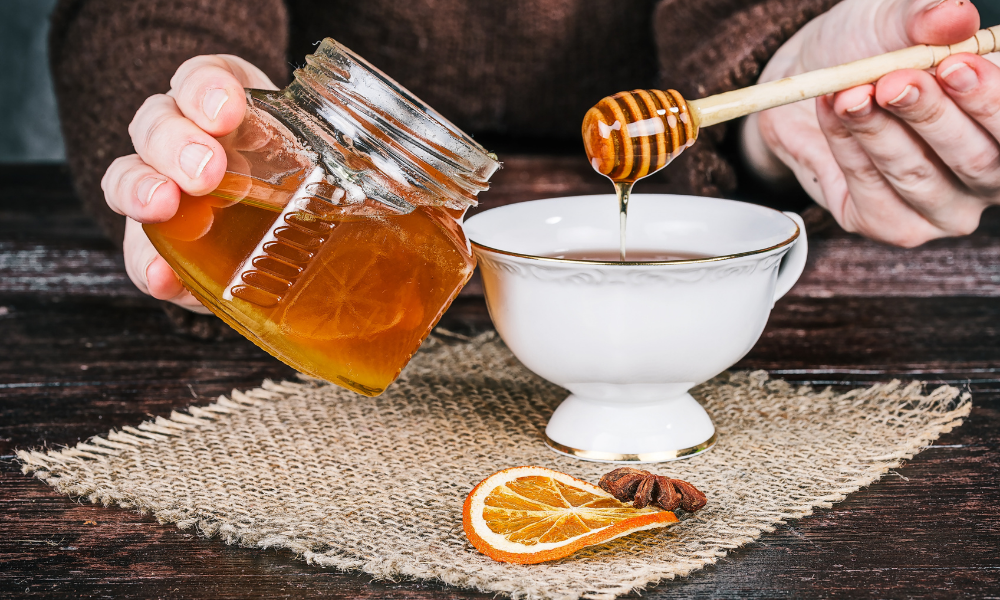Honey-The Sweet Side-Kick for Allergies

Seasonal allergies are a nightmare for someone who loves to go outdoor. Many suffer from February till August. During this season, plants produce pollens which then causes seasonal allergies. Pollens are small powder life substance that causes the formation of seed and reproduce.
During this season, pollens are present abundant in the air. People inhale pollens along with the air. The body perceives those pollens as foreign particles and initiates an immune response against them.
There are many over-the-counter treatments available for seasonal allergies, but those many of those involve some kind of chemical-based medicine. As we all know, those medicines have some sort of side effects.
There are natural treatments too, one of which is “HONEY.”
The main idea behind honey treating seasonal allergies is very similar to getting allergy shots. The bees pollinate the flowers and make honey. Those pollens are present in honey. So when a person is eating honey, he is also ingesting pollens. The body will become used to it and become less and less sensitive to pollens, eventually solving the seasonal allergy.
A study was conducted in 2013, which involved people with allergic rhinitis. After 8 weeks of honey ingestion, one specific group of people improved better as compared to other groups.
Besides treating allergies, honey is widely used as a treatment for cough, digestive issues, and a lot more.
Remember, this is not meant to be a quick fix, but rather something you can incorporate into your life during allergy season. Also, quality of the honey is important, make sure you purchase pure honey without additives as your body will not know what to do with them and it will likely end up with weight gains. Locally produced honey, which supposedly contains local plant pollens to which a person could be allergic, is thought to be the preferred type of honey for allergies so if local honey or bee pollen is available, it will be your best bet to naturally fight allergy symptoms. (Although this is still up for debate with health professionals, it doesn’t hurt to add it to your daily Allergy Relief Tea.)


